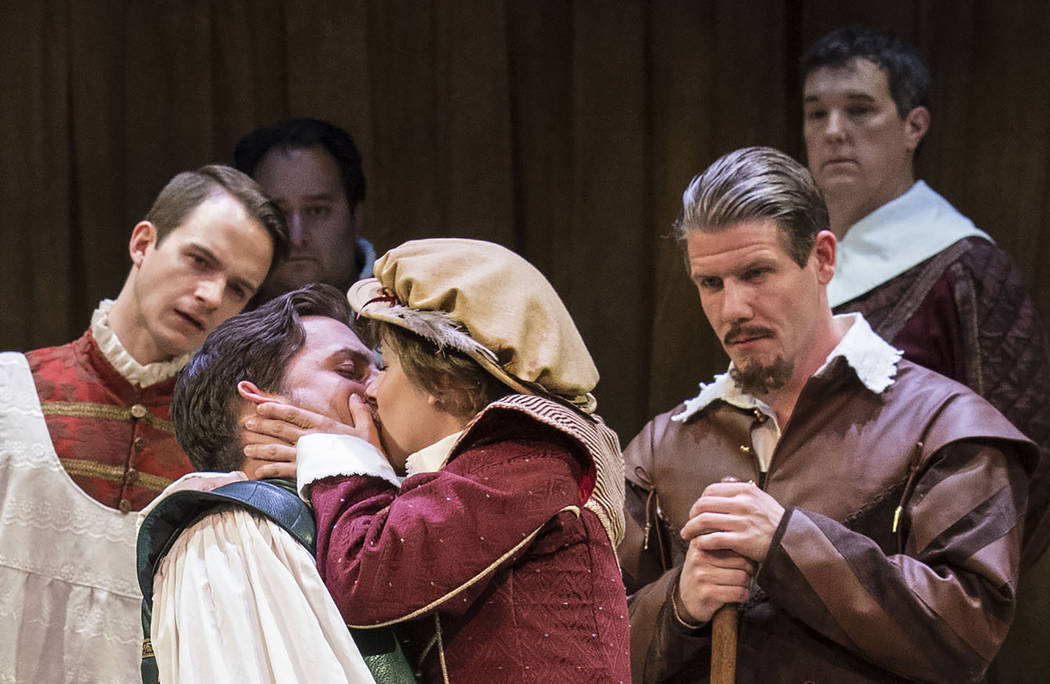‘Shakespeare in Love’ moves smoothly from screen to stage

Shall I compare thee to an Oscar-winning movie of the same name? (With apologies to William Shakespeare’s Sonnet 18.)
Happily — and hardly surprisingly — the delightful regional premiere of “Shakespeare in Love” at the Utah Shakespeare Festival proves equally at home on stage. Which is more than we can say for far too many screen-to-stage transfers.
USF is one of three U.S. theaters debuting Lee Hall’s adaptation of Marc Norman and Tom Stoppard’s Academy Award-winning screenplay.
Incredibly, “Shakespeare in Love” also marks, at long last, the great Stoppard’s USF debut. I have just one question: What took so long? Make that two: The next time “Hamlet’s” on the schedule, why not pair it with Stoppard’s “Hamlet”-centric “Rosencrantz and Guildenstern Are Dead”?
After all, that’s exactly what USF is doing this season, pairing “Shakespeare in Love” with the play it so often references, “Romeo and Juliet.”
Not that “Romeo and Juliet” emerges immediately in its final heart-rending form.
No, the initial idea for young Will Shakespeare (the invaluable Quinn Mattfeld, balancing comedic flair and dramatic prowess with offhand ease) is the far less promising “Romeo and Ethel the Pirate’s Daughter.”
It’s a comedy. Theoretically. Because Will’s afflicted with a near-fatal case of writer’s block, he can’t really get anything committed to paper.
Until the lively, lovely Viola de Lesseps (the incandescent Betsy Mugavero, alias Mrs. Mattfeld) enters Will’s life — first as a fervent fan of his poetry, then as the real-life inspiration for the passionate romance Will will immortalize in “Romeo and Juliet.”
Suddenly, Will doesn’t need advice from his friend, the far more successful playwright Christopher “Kit” Marlowe (a dashing Shane Kenyon). Will’s far too busy discovering how life and love can feed his artistry — and how that artistry can transform not only his life, but the lives of all who experience it.
As in the movie, the stage version of “Shakespeare in Love” explores the interplay between on- and offstage life — and the contrast between the real-life roles we play and the ones we imagine.
Director Brian Vaughn (USF’s artistic director) smoothly and imaginatively integrates the two, underlining the inherent theatricality of the characters and their world(s).
Whether in rollicking comedy sequences or gripping dramatic turns — as when Viola confronts the awful truth of her impending marriage to the cruel and mercenary Lord Wessex (smilingly vile Geoffrey Kent) — “Shakespeare in Love” explores all the ways in which all the world’s a stage.
And, of course, how the players manage to make it through to the end, even when working without a script.
Contact Carol Cling at ccling@reviewjournal.com or 702-383-0272. Follow @CarolSCling on Twitter.